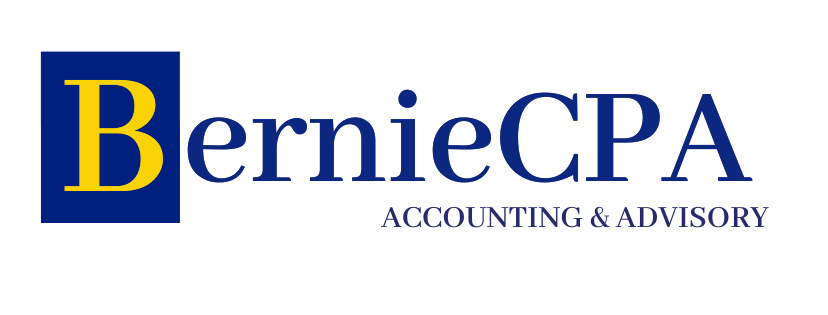Cracking the Code: Demystifying the Variances Between Accounting and Bookkeeping
Accounting and bookkeeping are often used interchangeably, but they are actually two distinct functions within the realm of financial management. Bookkeeping is the process of recording financial transactions, while accounting involves interpreting, classifying, analyzing, reporting, and summarizing financial data. Bookkeeping is essentially the foundation of accounting, as it involves the systematic recording of financial transactions such as sales, purchases, receipts, and payments. It is a crucial aspect of financial management as it provides the necessary data for accounting to take place. On the other hand, accounting involves the interpretation and analysis of the financial data recorded by bookkeeping to provide insights into the financial health of a business. It also involves the preparation of financial statements such as balance sheets, income statements, and cash flow statements to provide a comprehensive view of a company’s financial position.
The fundamental difference between accounting and bookkeeping lies in their scope and complexity. Bookkeeping is primarily concerned with the accurate recording of financial transactions, while accounting involves a deeper level of analysis and interpretation of the financial data. Bookkeeping is more transactional in nature, focusing on the day-to-day recording of financial activities, while accounting is more strategic, providing insights and recommendations for decision-making. Both functions are essential for the financial management of a business, but they serve different purposes and require different skill sets.
Understanding the Role of Bookkeeping in Business Operations
Bookkeeping plays a critical role in the day-to-day operations of a business by ensuring that all financial transactions are accurately recorded and organized. It provides a clear and detailed record of a company’s financial activities, which is essential for monitoring cash flow, tracking expenses, and preparing financial statements. Without accurate bookkeeping, it would be impossible to have a clear understanding of a company’s financial position and make informed decisions. Bookkeeping also provides the necessary data for tax compliance and reporting, as well as for securing financing from banks or investors.
In addition to its role in financial management, bookkeeping also helps businesses maintain transparency and accountability in their operations. By keeping accurate records of financial transactions, businesses can demonstrate their compliance with regulatory requirements and provide evidence of their financial stability to stakeholders. Bookkeeping also helps businesses identify areas for improvement and make informed decisions about resource allocation and investment opportunities. Overall, bookkeeping is an essential function for the smooth operation and long-term success of a business.
The Importance of Accurate Bookkeeping for Financial Reporting
Accurate bookkeeping is crucial for the preparation of reliable financial reports that provide insights into a company’s financial performance and position. Financial reports such as balance sheets, income statements, and cash flow statements are essential for stakeholders such as investors, creditors, and regulatory authorities to assess a company’s financial health. Without accurate bookkeeping, these reports would be unreliable and could lead to misinformed decisions and potential legal issues.
Accurate bookkeeping also ensures compliance with tax regulations and reporting requirements. By maintaining detailed records of financial transactions, businesses can accurately calculate their tax liabilities and avoid penalties for non-compliance. Inaccurate or incomplete bookkeeping can lead to costly errors in tax reporting and potential audits by tax authorities. Additionally, accurate bookkeeping provides a clear audit trail for external auditors to verify the integrity of a company’s financial records.
Furthermore, accurate bookkeeping is essential for internal decision-making and strategic planning. It provides the necessary data for budgeting, forecasting, and performance analysis, which are crucial for identifying opportunities for growth and mitigating risks. Overall, accurate bookkeeping is essential for ensuring transparency, accountability, and compliance in financial reporting.
The Complexities of Accounting and Its Impact on Decision Making
Accounting is a complex function that involves interpreting and analyzing financial data to provide insights into a company’s financial performance and position. It requires a deep understanding of accounting principles, regulations, and standards to ensure that financial reports are accurate and reliable. Accounting also involves making judgments and estimates about future events and uncertainties, which can have a significant impact on decision-making.
The complexities of accounting lie in its need for accuracy, consistency, and transparency in financial reporting. Accounting standards such as Generally Accepted Accounting Principles (GAAP) or International Financial Reporting Standards (IFRS) provide guidelines for how financial transactions should be recorded and reported to ensure comparability and reliability across different companies and industries. Adhering to these standards requires a high level of expertise and attention to detail to ensure that financial reports are free from material misstatements or errors.
The impact of accounting on decision-making is significant, as it provides the necessary information for evaluating the financial performance of a business and making informed decisions about resource allocation, investment opportunities, and risk management. Accounting also provides insights into the profitability, liquidity, and solvency of a company, which are essential for assessing its long-term viability. Overall, accounting is a complex function that requires expertise and diligence to ensure that financial reports are accurate and reliable for decision-making.
Bridging the Gap Between Bookkeeping and Accounting for Business Success
While bookkeeping and accounting are distinct functions within financial management, they are interconnected and complementary in their roles. Bridging the gap between bookkeeping and accounting is essential for ensuring that financial data is accurately recorded, analyzed, and reported to provide insights into a company’s financial health. This can be achieved through effective communication and collaboration between bookkeepers and accountants to ensure that there is consistency and accuracy in financial reporting.
One way to bridge the gap between bookkeeping and accounting is through the use of integrated accounting software that streamlines the recording, analysis, and reporting of financial data. This allows for seamless communication between bookkeepers and accountants by providing real-time access to financial information and ensuring that there is consistency in data entry and reporting. Integrated accounting software also allows for automation of routine tasks such as data entry, reconciliation, and report generation, which reduces the risk of errors and frees up time for more strategic analysis.
Another way to bridge the gap between bookkeeping and accounting is through ongoing training and professional development for bookkeepers to enhance their understanding of accounting principles and standards. This can help ensure that bookkeepers have the necessary skills and knowledge to accurately record financial transactions in accordance with accounting standards and provide reliable data for analysis by accountants. Similarly, accountants can benefit from understanding the intricacies of bookkeeping to ensure that they have access to accurate and complete financial data for reporting.
Overall, bridging the gap between bookkeeping and accounting is essential for ensuring that businesses have access to reliable financial information for decision-making. This can be achieved through effective communication, collaboration, and the use of integrated accounting software to streamline processes.
The Role of Technology in Streamlining Bookkeeping and Accounting Processes
Technology plays a crucial role in streamlining bookkeeping and accounting processes by providing tools and solutions that automate routine tasks, improve accuracy, and enhance efficiency. Integrated accounting software such as QuickBooks, Xero, or FreshBooks allows businesses to record financial transactions, reconcile accounts, generate reports, and manage cash flow in a centralized platform. This reduces the need for manual data entry and reconciliation, which can be time-consuming and prone to errors.
Furthermore, technology enables real-time access to financial information from anywhere at any time through cloud-based accounting solutions. This allows for seamless collaboration between bookkeepers, accountants, and other stakeholders by providing access to up-to-date financial data for analysis and decision-making. Cloud-based solutions also provide enhanced security measures to protect sensitive financial information from unauthorized access or data breaches.
In addition to integrated accounting software, technology also enables automation of routine tasks such as invoicing, expense tracking, payroll processing, and bank reconciliations through specialized applications or add-ons. This reduces the administrative burden on bookkeepers and accountants by freeing up time for more strategic analysis and decision-making. Technology also provides advanced reporting capabilities such as customizable dashboards, key performance indicators (KPIs), and predictive analytics to provide insights into a company’s financial performance.
Overall, technology plays a crucial role in streamlining bookkeeping and accounting processes by providing tools and solutions that improve accuracy, efficiency, collaboration, and security.
Navigating the Variances Between Accounting and Bookkeeping for Small Business Owners
For small business owners, navigating the variances between accounting and bookkeeping can be challenging due to limited resources and expertise in financial management. However, understanding the differences between these functions is essential for ensuring that accurate financial information is available for decision-making. Small business owners can benefit from leveraging technology solutions such as integrated accounting software to streamline bookkeeping processes while providing access to reliable data for analysis by accountants.
Small business owners can also benefit from seeking professional advice from certified public accountants (CPAs) or accounting firms to ensure compliance with regulatory requirements and best practices in financial reporting. CPAs can provide guidance on setting up effective bookkeeping processes, implementing internal controls, preparing accurate financial statements, managing tax compliance, and making informed decisions about business operations. They can also provide insights into strategic planning, budgeting, forecasting, risk management, and investment opportunities.
Furthermore, small business owners can benefit from ongoing training in bookkeeping principles and practices to enhance their understanding of financial management. This can help ensure that they have the necessary skills to accurately record financial transactions, monitor cash flow, track expenses, prepare invoices, reconcile accounts, manage payroll processing, and generate basic financial reports. Small business owners can also benefit from understanding key accounting concepts such as revenue recognition, expense matching, asset valuation, liability recognition, equity transactions, depreciation methods, inventory costing methods, cost allocation methods, budgeting techniques, variance analysis methods.
Overall, navigating the variances between accounting and bookkeeping for small business owners requires a combination of technology solutions, professional advice from CPAs or accounting firms, ongoing training in bookkeeping principles and practices.
In conclusion,
Accounting and bookkeeping are essential functions within the realm of financial management that serve different purposes but are interconnected in their roles. Bookkeeping involves recording financial transactions while accounting involves interpreting analyzing those transactions to provide insights into a company’s financial health. Accurate bookkeeping is crucial for providing reliable data for financial reporting while accounting provides insights into decision-making based on that data.
Technology plays a crucial role in streamlining bookkeeping processes by providing tools that automate routine tasks improve accuracy enhance efficiency while small business owners can benefit from leveraging technology solutions seeking professional advice ongoing training in bookkeeping principles practices to navigate variances between accounting bookkeeping for success in their business operations.


